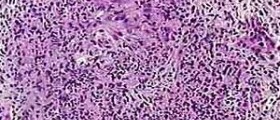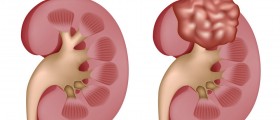
The human body contains twobean-shaped organs called kidneys and they perform certain functions that are indispensable. For that reason, the healthy kidneys are necessary for normal functioning of our body. However, there are various ailments that canaffect these two organs and damage them, resulting in the kidneys’ malfunctioningor even failure.
Among the disorders that affect thekidneys there is one called glomerulonephritis, which is more known under thename nephritis. This kidney disorder is characterized by the inflammation orimpairment of glomeruli, which are the small filters that assist in the filtering of the blood. When the glomeruli are affected, the proteins, as well as the redblood cells, pass into the urine from the blood. This condition should be treated sincethe damaged glomeruli may be completely destroyed over time, thus causing the kidneysfailure.
Acute glomerulonephritis refers tothe sudden inflammation of the glomeruli, while chronic glomerulonephritisdevelops gradually. Furthermore, the primary glomerulonephritis is consideredto be a disease, while it may also be a part of some systematic disease.
Causes of glomerulonephritis
Even though the cause for the occurrenceof glomerulonephritis is not found yet, there are several causes that contributeto development of this condition. It is even believed that the consumption of certainmedicines and infections, as well as cancer, can lead to the incidence ofglomerulonephritis. Furthermore, it is also considered that certain genetic abnormalitiesmay result in the appearance of glomerulonephritis, and that a weak immune system can be a potential cause for the occurrence of this kidney disease.
Glomerulonephritis in the childrenis usually induced by a streptococcal infection, especially if the infection involves the upper respiratory tract. In this case, this disease is named acutepoststreptococcal glomerulonephritis, abbreviated APSGN.
Symptoms of glomerulonephritis
Proteinuria is the condition markedby presence of protein in the urine that consequently becomes frothy. Apart fromthe proteinuria, the urine may contain the red blood cells and change the colorinto brown or dark. The infrequent urination is also a symptom of this kidneydisease.
In case of chronicglomerulonephritis, there are also several symptoms that develop over time. Thesesymptoms may include unexpected weight loss, tiredness, headaches, musclecramps and twitching of the muscles. Furthermore, nausea, vomiting, frequentbouts of hiccups, bleeding or bruising easily, and hyperpigmentation are alsosome of the symptoms of chronic glomerulonephritis.
Delirium, seizures, coma and reducedsensation in the extremities are some of the serious symptoms of thiscondition. It is also noted that chronic glomerulonephritismay cause hypertension, nosebleeds and blood in the stools.

















Your thoughts on this
Loading...